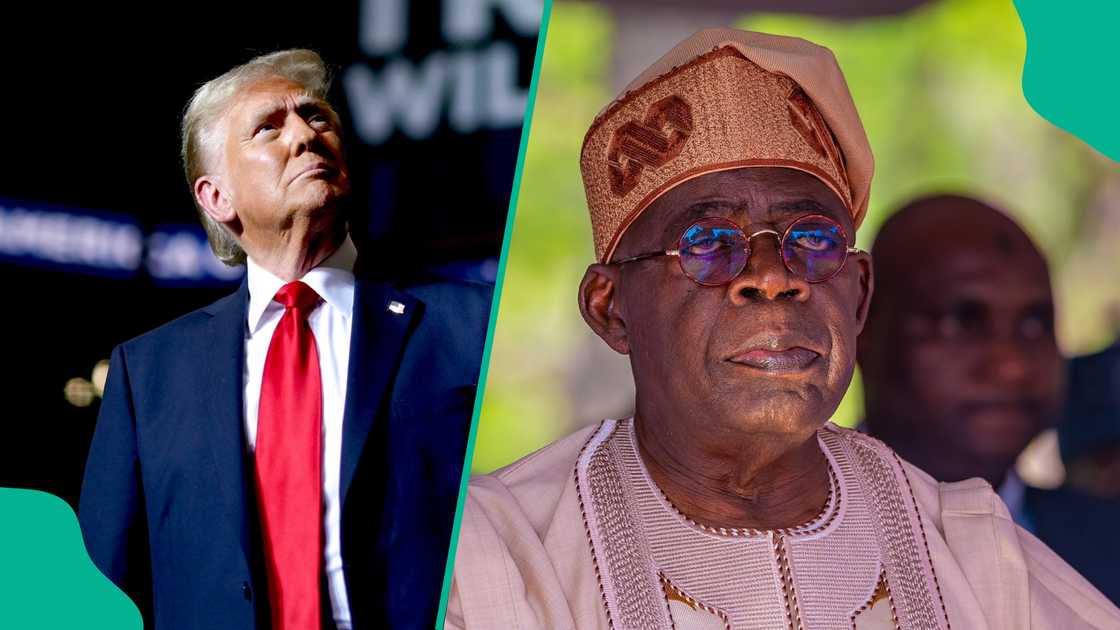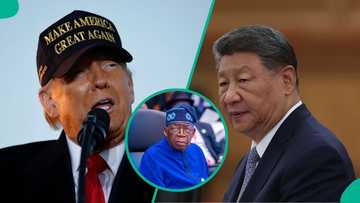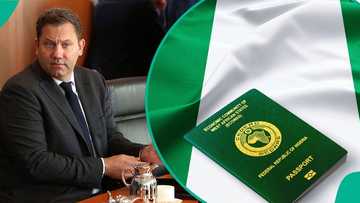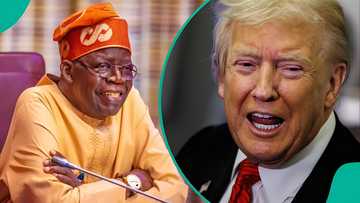Trump’s Threat Tests Ties as U.S. Slips to 6th among Nigeria’s Top Trade Partners in 2025
- Threats by the US President, Donald Trump, to strike Nigeria over alleged Christian killings has sparked renewed trade tensions
- The two countries have since had strong and robust relations, with US import to Nigeria increasing in the first quarter of 2025
- However, data has shown that US slipped into a new position among Nigeria’s global trade partners
Pascal Oparada is a journalist with Legit.ng, covering technology, energy, stocks, investment, and the economy for over a decade.
Nigeria’s trade relations with the United States have drawn renewed attention following President Donald Trump’s recent threat to suspend aid to Nigeria over alleged persecution of Christians.
The warning has rattled both diplomatic and economic circles, raising concerns about potential ripple effects on investment and trade flows.

Source: Twitter
Oil still dominates as non-oil exports lag
Despite this tension, new figures from the National Bureau of Statistics (NBS) indicate that the U.S. remains a key, though gradually declining, player in Nigeria’s export landscape.
In the second quarter of 2025, the United States ranked as Nigeria’s sixth-largest export destination, accounting for ₦1.4 trillion in goods, mostly crude oil.
According to the NBS, oil exports made up roughly 68 percent of total shipments to the U.S., while non-oil exports, including agricultural produce, textiles, and manufactured goods, contributed just 1.9 percent.
Trump’s earlier move to raise Nigeria’s import tariff by one percentage point to 15 percent has had little effect on overall trade, largely because crude oil, Nigeria’s top export, remains exempt from U.S. import tariffs.
However, the U.S. president’s fiery rhetoric has triggered unease among investors. Dr. Muda Yusuf, Director of the Centre for the Promotion of Private Enterprise (CPPE), warned that such remarks could harm Nigeria’s investment climate.
“Trump’s threat, if sustained, could weaken investor confidence and heighten Nigeria’s economic risk profile,” Yusuf said.
“It sends a negative signal to the market at a time when the economy is already struggling with foreign exchange shortages, weak reserves, and rising debt.”

Read also
China defends Nigeria: 4 reasons Beijing attacks Trump uver plans to strike Africa’s biggest economy
Amid the diplomatic strain, Nigeria’s dollar bonds have taken a hit, reflecting global investors’ growing wariness about the country’s economic outlook.
Europe, Asia tighten grip on Nigerian exports
While the United States remains a major economic partner, accounting for about $13 billion in total bilateral trade in 2024, recent NBS data reveal that European and Asian nations have overtaken the U.S. as Nigeria’s leading export destinations.
Spain now tops the list, importing nearly ₦2.5 trillion worth of goods, primarily crude oil and liquefied natural gas.
India, a consistent buyer of Nigerian energy, continues to expand its purchases amid efforts to diversify its fuel sources away from the Middle East.
France and the Netherlands, both vital refining hubs, have ramped up imports due to ongoing energy shortages across the Eurozone.

Source: Twitter
Canada’s rise into the top five reflects deeper energy cooperation with Nigeria, particularly in natural gas projects.
This shift demonstrates a strategic diversification in Nigeria’s global trade network as the country strengthens partnerships with nations beyond traditional Western allies.

Read also
Lady predicts likely outcome of China's move to wade into tension between Nigeria and Donald Trump
America’s influence wanes, but trade ties Remain vital
Although the U.S. still accounts for around 6 percent of Nigeria’s total exports, its dominance has waned steadily over the past decade.
The American shale oil boom has significantly reduced U.S. dependence on African crude, reshaping the trade balance.
Trump’s renewed aid suspension threat, driven by human rights and religious freedom concerns, adds further complexity to an already delicate bilateral relationship.
Analysts say any U.S. action to restrict imports or cut aid would have limited short-term economic impact, as Nigeria’s strengthening ties with Europe and Asia continue to offer a critical buffer against Washington’s diplomatic pressure.
Nonetheless, maintaining stable relations with the U.S. remains crucial for Nigeria, not only for trade but also for investment, security, and technology collaboration.
Economic implications of Country of Particular Concern on Nigerians
Legit.ng earlier reported that U.S. President Donald Trump officially redesignated Nigeria as a Country of Particular Concern (CPC) over alleged killings of Christians in the northern part of the country.
Experts warn that the U.S. decision could trigger serious economic consequences for Nigeria, particularly if Washington decides to impose sanctions or trade restrictions.
According to trade data, the U.S. recorded a $576 million trade surplus with Nigeria in the first half of 2025, a sharp turnaround from a $779 million deficit in the same period of 2024.
Source: Legit.ng



